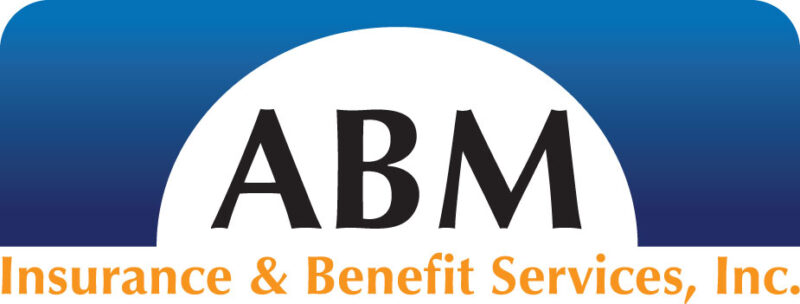 In the world of construction, general contractors are pivotal players who oversee projects from conception to completion. They ensure that projects are executed efficiently, on time, and within budget. However, the construction industry is fraught with risks ranging from workplace accidents to contractual disputes. Thus, protecting your general contracting business through meticulous planning and strategic legal and financial frameworks is essential. This article delves into key areas such as subcontractor agreements, insurance, and indemnification agreements, offering insights into safeguarding your business. ABM Insurance & Benefit Services has been protecting construction companies for 35 years with General Liability, Workers Compensation, Builders Risk and Commercial Auto. Call a construction specialist at 800-362-2809 to see what we can do for you or visit us at www.getagreatquote.com
In the world of construction, general contractors are pivotal players who oversee projects from conception to completion. They ensure that projects are executed efficiently, on time, and within budget. However, the construction industry is fraught with risks ranging from workplace accidents to contractual disputes. Thus, protecting your general contracting business through meticulous planning and strategic legal and financial frameworks is essential. This article delves into key areas such as subcontractor agreements, insurance, and indemnification agreements, offering insights into safeguarding your business. ABM Insurance & Benefit Services has been protecting construction companies for 35 years with General Liability, Workers Compensation, Builders Risk and Commercial Auto. Call a construction specialist at 800-362-2809 to see what we can do for you or visit us at www.getagreatquote.com
Subcontractor Agreements: Ensuring Reliability and Quality
A substantial portion of a general contractor’s work involves managing subcontractors who specialize in particular aspects of the construction process. The quality of the work done by subcontractors can significantly affect the project’s overall quality and timeline. Therefore, it’s crucial to have comprehensive subcontractor agreements in place. These agreements should clearly outline the scope of work, timelines, payment schedules, and quality expectations. Moreover, they should include clauses on dispute resolution and mechanisms for dealing with delays or substandard work. Conducting thorough due diligence before hiring subcontractors, such as checking references and past projects, is equally important.
Does your coverage protect you from damage caused by subcontractors?.
If your subcontractor is hurt on your job, will your coverage protect you and your client?
These are important questions to ask since, most standard policies do not provide this coverage and it could save you and your clients from lawsuits.
Insurance: Mitigating Risks
Insurance is a cornerstone of risk management in the construction industry. General contractors should consider various types of insurance, including:
- General Liability Insurance: Covers property damage and bodily injury caused by your operations or products.
- Workers’ Compensation: Provides benefits to employees who suffer work-related injuries or illnesses.
- Professional Liability Insurance (Errors & Omissions): Protects against claims of professional negligence or failure to perform professional duties.
- Builders Risk Insurance: Covers buildings under construction against fire, theft, and certain weather damages.
- Commercial Auto Insurance: For vehicles used in business operations.
Choosing the right mix of insurance coverage depends on the nature of your projects, the size of your business, and specific risks associated with your operations.
Indemnification Agreements: Shielding Against Liabilities
Indemnification agreements are pivotal in protecting general contractors from liabilities arising from the actions of subcontractors, vendors, or other third parties. These agreements ensure that another party will cover or reimburse your business for certain damages, losses, or legal liabilities. When drafting indemnification clauses, it’s crucial to clearly define the scope of indemnification, including what is covered and any limitations. It’s advisable to have legal experts review these agreements to ensure they comply with local laws and adequately protect your business. Consult with your council to design a protection agreement / form that protects you and your clients.
What to Look Out For
While subcontractor agreements, insurance, and indemnification agreements are critical, several other considerations are essential for protecting your general contracting business:
- Licensing and Compliance: Ensure that your business and all subcontractors are properly licensed and comply with local, state, and federal regulations.
- Quality Control: Implement rigorous quality control procedures to mitigate the risk of defects or non-compliance with specifications.
- Financial Management: Maintain robust financial management practices, including accurate budgeting, cash flow management, and contingency planning.
- Contractual Awareness: Be vigilant about the contractual obligations of all parties involved in a project (specifically Indemnification Agreements that require you to hold your client(s) harmless against any and all actions or claims). Clear, concise, and detailed contracts can prevent misunderstandings and disputes.
Protecting your general contracting business requires a multifaceted approach, focusing on legal agreements, insurance coverage, and operational best practices. By paying close attention to subcontractor agreements, ensuring adequate insurance coverage, and implementing strong indemnification clauses, you can safeguard your business against many of the risks inherent in the construction industry. Additionally, maintaining high standards of compliance, quality control, and financial management will further fortify your business’s resilience and reputation.
Call us at 800-362-2809 or visit us at www.getagreatquote.com
